Profile: Dr Karima Chiuri
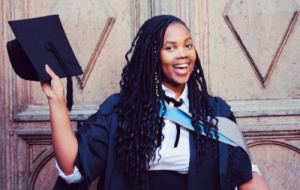
(2018, DPhil Population Health)
Karima came to Univ for an MSc in Global Health Science and has continued her studies with DPhil, developing her research into cervical cancer. She is also Secretary of the Rhodes Scholar Africa Forum and co-president of the Black Association of Rhodes Scholars.
Why did you decide to pursue research rather than practising medicine?
Quite early on in my training, I met a patient who changed my life. While learning from her case, I became (quite painfully) aware of the limitations of providing individual care in resource-limited contexts. The research work I’m pursuing revolves around finding ways to have healthier populations so individuals are less affected by illness.
I always knew I wanted to pursue research at a higher level. The MSc allowed me the space to develop my ideas and goals, viewing them not only through the lens of the taught classes but also that of my talented and passionate classmates. I think it was also quite useful to have it as a “test run’” to find out if the research space would be right for me.
Give your (really cool!) specialist subject elevator pitch.
Basically, if every woman was screened, we could eliminate cervical cancer. My work looks deeply at successful screening programmes, like the UK’s, with an eye on how to deploy similar interventions in resource limited contexts.
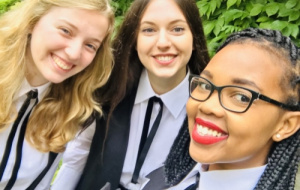
Matriculation
Why did you choose Univ?
I love stories. One of the greatest things about Oxford is the opportunity to live and work around so much history! Naturally then, I was drawn to Univ because it has the longest history. I also loved that part of Univ’s story included the first black African scholar in Oxford: Christian Cole. I felt that was a story I wanted to be a part of. I also wanted to sign the book!
How did it feel to be awarded a Rhodes scholarship?
Surreal, but I don’t think even that quite captures the rollercoaster of emotions that range from panic to extreme joy. At selection, you don’t really quite know what to feel, but I would say it all comes back to gratitude. Throughout this journey as a Rhodes scholar, I’ve met wonderful and unique people from all over the world, with whom I have shared laughter with but also had challenging (and sometimes difficult) conversations. It’s deeply sobering just how fortunate I am that this is my story.
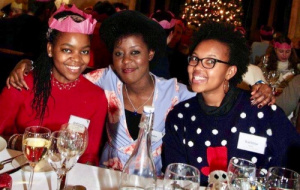
Christmas dinner at Rhodes House
Has anything surprised you about Oxford?
I think one of the things that surprises me every day is the juxtaposition of the old and the new. While there are such old traditions like having my MSc conferred in Latin, there is also space for new and innovative ways. I think Oxford exists in that really unique space where the brilliant and passionate people enrolled here breathe new life into its impressive history and traditions.
How do you feel you have changed since you stepped through Univ’s doors for the first time?
I would say how much I have learned and continue to learn about myself. Medical training was all encompassing to say the least and gave little room for the pursuit of other interests. Here, with my more flexible DPhil schedule, I have found space to balance the work with my own interests, which includes finding out what they are. For me to have the opportunity to explore these in the Univ community has been truly memorable.
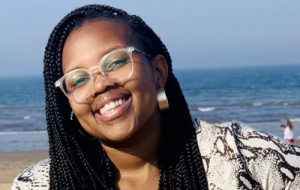 How do you feel about the celebration of 40 years of women at Univ?
How do you feel about the celebration of 40 years of women at Univ?
It’s quite sad to me that women have only featured in the stories of Univ for 40 years. I think it is also important to consider and address the variety of other ways women experience inequalities at Univ and at Oxford more broadly including race, faith, sexuality and so on. There is still much work to be done and, while we celebrate, we must take pause to reflect on how better to focus on diversity and equality.
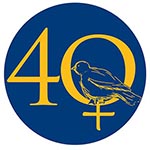 Women at Univ 2019. Celebrating 40 years of achievement by women students, academics and staff, and recovering the history of women in the College from 1249 to the present day.
Women at Univ 2019. Celebrating 40 years of achievement by women students, academics and staff, and recovering the history of women in the College from 1249 to the present day.
Published: 18 December 2019
